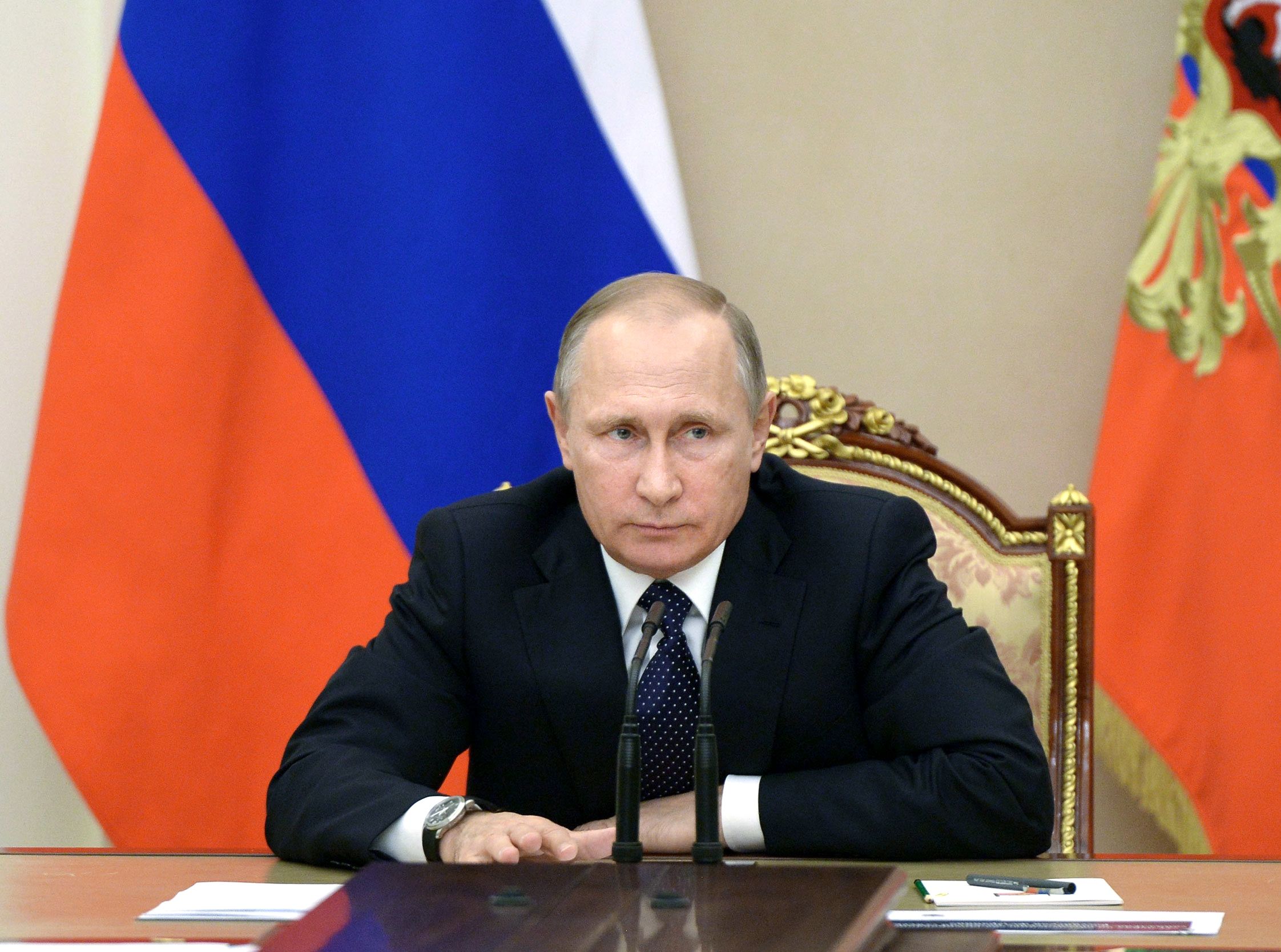
As President Vladimir Putin further tightens his grip on power after dubious elections that gave his party an absolute majority, Russia is sliding into protracted stagnation. The Economics Ministry has adjusted downward its forecast through 2019 and Russia is now expected to underperform the global economy even more than previously anticipated.
That is the background against which Putin's continued geopolitical games and the generational change in his team will proceed, resulting in a two-track Russia.
Its increased military and political assertiveness is paying off. Since 2014, he has hung on to Crimea, irritated and disoriented Western rivals with what's known as "hybrid warfare" that includes everything from unacknowledged military operations to hacking. His support for growing populist movements in Europe makes the European Union less dangerous to him as an adversary, and he has built up a strong position in Syria.
"If we remain in the logic of Putin's attempts to force the West to reconsider the global role of Russia in world politics," the political scientist Alexander Morozov wrote on Facebook, "it is clear that not only has he completed the first stage of the quest (2014-2016) almost without casualties, but he also has begun preparing for the new phase of this 'guerrilla war' against the West."
By that, Morozov means the recent reshuffle of Russia's security apparatus and a spate of personnel changes that gives a greater role to a new generation of bureaucrats and ideologues to whom he owes nothing but who owe everything to him.
Since the elections, Putin has made the parliament speaker Sergei Naryshkin, a former intelligence officer, head of the Foreign Intelligence Service, and handed the speaker's post to Vyacheslav Volodin, a former Kremlin aide who had been charged with organising the election and engineering the pro-Putin party's victory. The Moscow daily Kommersant has reported that Putin may soon complete the security reform by concentrating more power in the domestic intelligence service, now known as the FSB. The paper predicted that the FSB would soon swallow foreign intelligence and take on more investigative functions, swelling to the size and influence of the Soviet-era KGB.
On the security and foreign policy front, Putin is a successful autocrat, able to consolidate his power and make well-thought out decisions. He is inept in economic affairs, though, and Russia is rudderless. The role of the strong technocratic teams at the Economics and Finance Ministries and the Central Bank is essentially to maintain and describe the status quo. It looks bleak in their description.
The new forecast is based on an average oil price of $40 per barrel through 2019, slightly below the recent level. It adjusts this year's economic output target to a 0.6 per cent decline from 0.2 per cent, and also corrects downward the growth targets for the next three years. This means Russia will be falling behind the rest of the world just as Putin tries to make it more dangerous and more active as a global power.
These priorities would be incompatible from a common sense point of view. Outward assertiveness and tightening domestic control are expensive. There has been talk of raising taxes among the newly elected legislators -- for example, eliminating the 13 per cent flat income tax that spurred the Russian economy in the early 2000s and returning to a progressive scale. That, however, would be harmful to businesses that are already struggling because of the recession and excessive government control. As throughout the last two years, the Finance Ministry and the central bank are likely to whittle down the budget deficit by other means for now.
On September 22, Russia placed a $1.25 billion Eurobond. It was heavily oversubscribed and sold at a 3.9 per cent yield -- not bad for an economy as stagnant as Russia's. Foreign investors snapped it up even though no Western bank took part in arranging the placement and the state-owned VTB Capital ran the book. The Russian Finance Ministry has arranged for Euroclear, the big European settlement house, to work with its recent bonds. So from the investors' point of view, these instruments are a safe island of income in a sea of negative yields. Despite the economic sanctions against it, Russia can and will borrow overseas.
At the same time, the central bank is stepping up the emission financing of the budget: It prints rubles to buy foreign currency from the government's reserve funds. The foreign exchange remains part of Russia's international reserve, moving from one pocket to another, and trillions of rubles of new money are released into the economy. This should put downward pressure on the ruble's exchange rate and even on consumer prices, but the Economics Ministry has actually lowered its inflation forecast for this year to 5.8 per cent from 6.5 per cent. It remains to be seen whether the central bank will be able to keep inflation that low as the government scrambles to narrow the budget deficit.
So far, ordinary Russians have been paying the price of economic stagnation and political hyperactivity. In August, their real incomes dropped 8.3 per cent from a year earlier, according to official statistics -- more than in any month since the height of the global economic crisis, in December 2008. So far, Russians have been glumly patient. Yet, if the surprisingly low turnout at the parliamentary election is any indication, their sense of separation from Putin's system is growing. Unless Putin switches his attention to stimulating economic expansion, the patience may start fraying, making tighter domestic control his first priority. - Bloomberg View